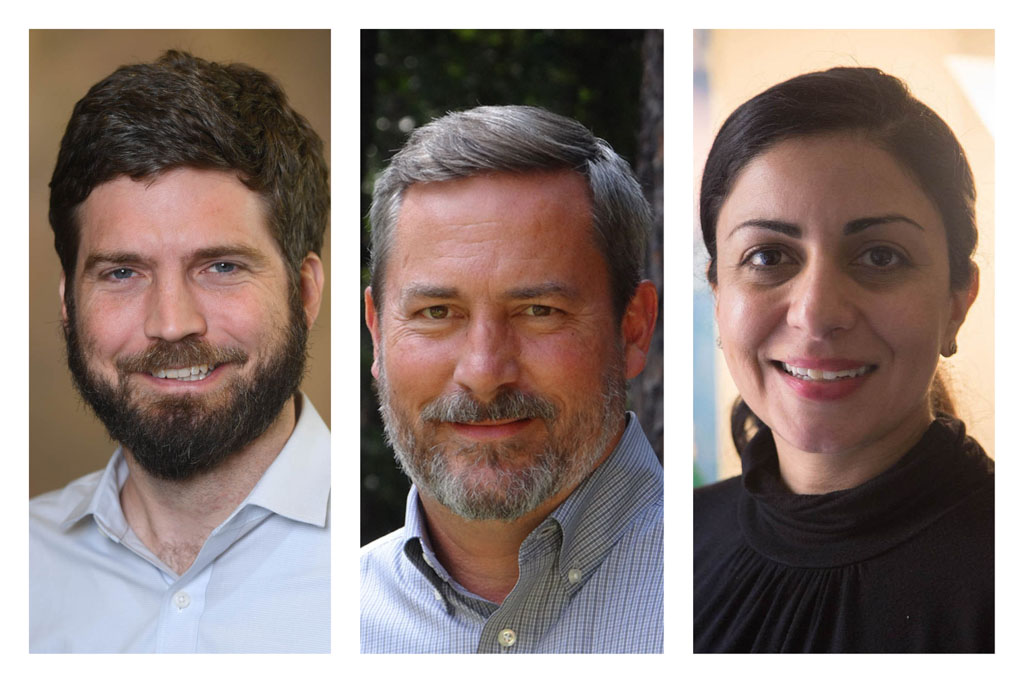USM Joins CGS Coalition to Support Diverse Career Pathways for Humanities PhDs
Wed, 08/18/2021 - 04:54pm
 The University of Southern Mississippi (USM) has received funding from the Council
of Graduate Schools (CGS) to catalyze innovation in the preparation of humanities
PhDs for diverse careers. Through a competitive sub-award process, a committee selected
USM to join The Humanities Coalition, which will develop and assess initiatives for
better supporting humanities PhD students transitioning from graduate programs into
the workforce.
The University of Southern Mississippi (USM) has received funding from the Council
of Graduate Schools (CGS) to catalyze innovation in the preparation of humanities
PhDs for diverse careers. Through a competitive sub-award process, a committee selected
USM to join The Humanities Coalition, which will develop and assess initiatives for
better supporting humanities PhD students transitioning from graduate programs into
the workforce.
Universities will be working in one of two areas: grant-writing and resource development and building professional networks. USM will focus on grant-writing and resource development and will offer workshops and bootcamps on grant writing that can lead to a digital badge; engage internal and external partners (such as alumni) to share experiences illustrating the value of grantsmanship as key attributes of their professional portfolio; provide a monetary incentive for participation resulting in grant submission; and develop a plan to sustain these activities into the future.
 Dr. Matthew Casey, Dr. Rich Mohn, and Dr. Monika Gehlawat
Dr. Matthew Casey, Dr. Rich Mohn, and Dr. Monika Gehlawat
Dr. Karen Coats, USM Associate Provost and Dean of the Graduate School and principal investigator of the project, stated “Dr. Rich Mohn, associate dean of the Graduate School and Drs. Matthew Casey and Monika Gehlawat, director and associate director of the USM School of Humanities, respectively, and I are all very happy to partner with CGS and other institutions across the country as a part of The Humanities Coalition.
“Our School of Humanities attracts top graduate students from Mississippi and across
the globe who are interested in working with our renowned humanities faculty, and
the faculty take the responsibility of graduate student mentorship very seriously,”
Dr. Coats continued. “They are particularly cognizant of their responsibility to cultivate
students’ scholarly and professional development.
“Successful grant writing is a professional skill humanities PhDs need to be competitive
in today’s workforce, and this project will support initiatives aimed at developing
those skills. In addition to the impact this project will have on our humanities graduate
students, the data we collect will contribute to the goals of the larger project,
benefiting humanities majors broadly. It is exciting for USM to be a part of such
an aspirational project.”
The Humanities Coalition project is an expansion of prior work that included developing
and supporting a network of 75 U.S. doctoral institutions as they collect data from
STEM (Science, Technology, Engineering and Mathematics) and Humanities PhD students
and alumni about their professional aspirations, career pathways, and career preparation.
In general, data from the project yield a positive picture of humanities doctoral
education.
Most alumni reported that they are engaged in meaningful work and believe their doctoral
work prepared them for their current job responsibilities. However, data also indicate
that humanities PhDs who were employed in business, non-profit, or government, particularly
those in the early stages of their careers, feel less prepared than their peers working
at universities.
“Building on the extraordinary work of the PhD Career Pathways project, The Humanities Coalition will develop, expand, and scale up a suite of programs and practices in key areas of need,” said Suzanne Ortega, president of the Council of Graduate Schools. “We’ve been conducting research in career diversity for nearly a decade, and this work will take the next logical step from better understanding aspirations to preparing for successful careers.
“We know that humanities PhDs have many possible career paths in front of them. We need to make sure they know their options, how to access them, and that they’ve developed the skillsets necessary for success.”
USM will join a network of other grantees as well as universities that submitted competitive proposals to participate, including: Arizona State University; CUNY Graduate Center; Howard University; Indiana University Bloomington; Loyola University, Chicago; Michigan State University; Purdue University; Texas A&M University; The University of Texas at El Paso; University of Arizona; University of Arkansas; University of California, Irvine; University of Missouri; University of Rochester; University of Wisconsin-Madison; and Wayne State University.
About CGS
The Council of Graduate Schools (CGS) is an organization of approximately 500 institutions of higher education in the United States and Canada engaged in graduate education, research, and the preparation of candidates for advanced degrees. The organization’s mission is to improve and advance graduate education, which it accomplishes through advocacy in the federal policy arena, research, and the development and dissemination of best practices.
For more information about the USM Graduate School, visit Graduate School | The University of Southern Mississippi (usm.edu).